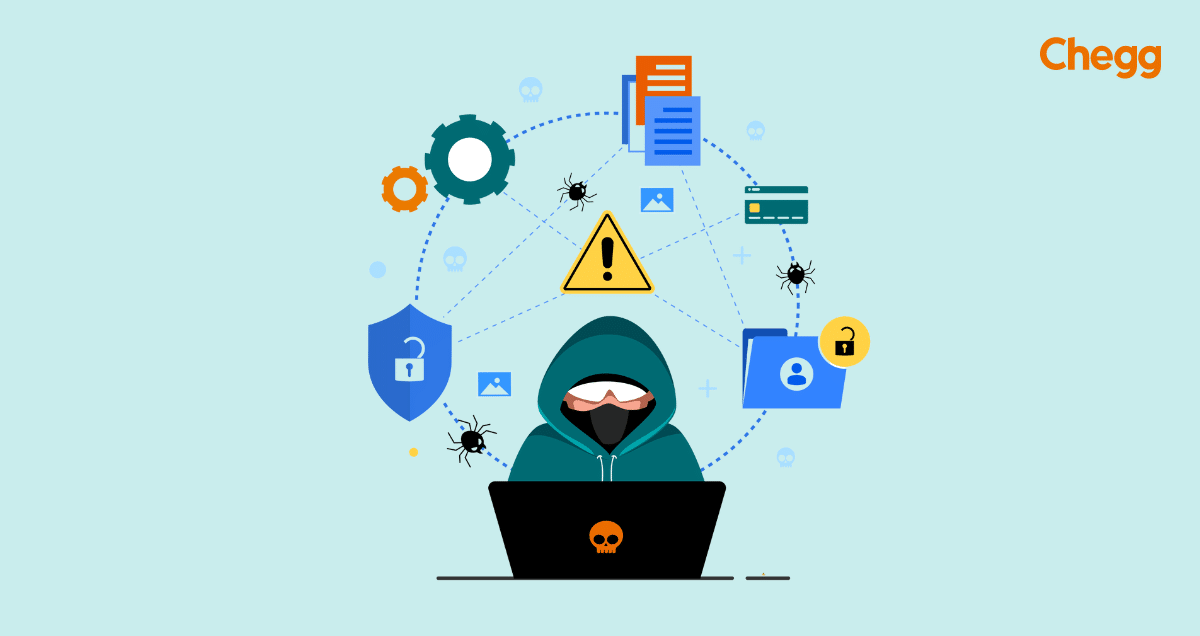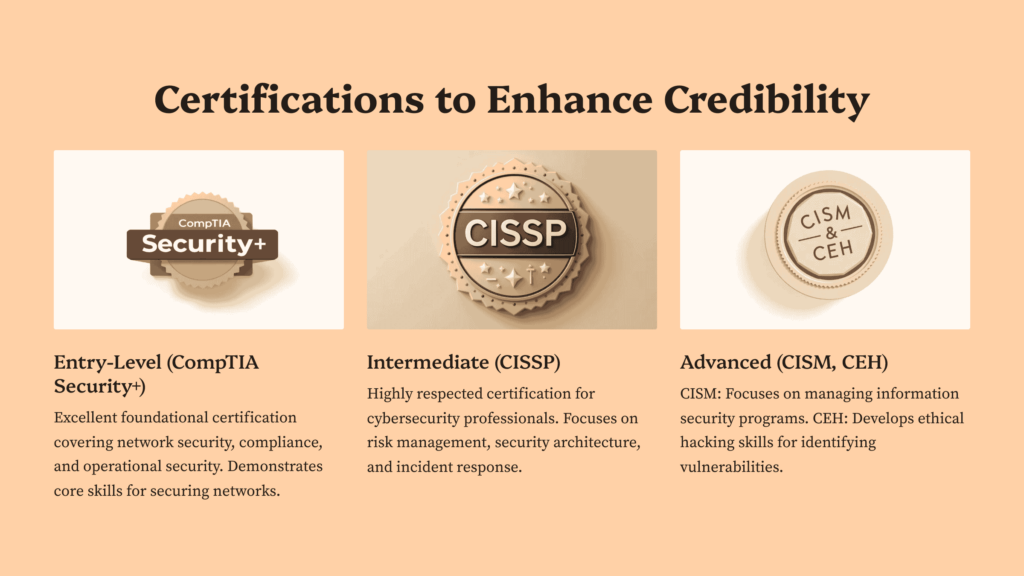

Quick Summary
In today’s digital landscape, the urgency of cyber security has never been greater. As businesses, governments, and individuals increasingly depend on technology, the risk of cyber threats continues to rise. Cyberattacks, data breaches, and ransomware incidents have become alarmingly common, highlighting the need for experts who can protect sensitive information. With growing concerns about these threats, there is a significant demand for cybersecurity specialists. Understanding how to become a cyber security expert is essential, as this field’s importance is continually expanding.
Cyber security is no longer just an IT issue but vital for global security. Professionals must safeguard networks, protect applications, and identify cyber threats before they can cause substantial financial and reputational harm.
With the increasing reliance on digital platforms, the job market for cybersecurity professionals is expanding at an unprecedented rate. Roles such as cybersecurity analyst, security analyst, and information security analyst are in high demand across industries, including finance, healthcare, and government. The cybersecurity industry faces a critical shortage of skilled professionals, making it an excellent career path for those with the right cybersecurity skills. Companies seek professionals skilled in network security, risk assessment, and threat mitigation. As cyber threats evolve, the demand for adaptable experts continues to grow. Whether through formal education, certifications, or hands-on experience, a career in cybersecurity offers abundant opportunities for growth and long-term job security.

A cybersecurity professional is an expert who specializes in safeguarding an organization’s digital resources against cyber attacks, data breaches, and malicious intrusions. These experts ensure information confidentiality, integrity, and availability. With increasingly sophisticated cyberattacks, cybersecurity professionals are the first defense against hackers and unauthorized access. To be a cybersecurity professional, one must learn different security measures, risk management strategies, and network defense methods. With our heightened dependence on technological advancements, companies, authorities, and individuals increasingly depend on protecting sensitive information to maintain operational security. Let’s discuss more about how to become a cyber security expert.
Cybersecurity professionals are engaged in various activities to ensure the prevention, identification, and response to cyber threats. A cyber security analyst monitors network traffic, analyzes vulnerabilities, and investigates security incidents. Other tasks include penetration testing, implementing security safeguards, and writing a plan of intervention for potential breaches by malicious outsiders.
A security analyst works on policy assessment, the management of firewalls, and ensuring that competitiveness is done to industry regulators. An information security analyst focuses on securing databases, managing encryption layers, and preventing access to unauthorized components of sensitive data. Such specialists also work in cooperation with IT crews to come up with security measures and risk analysis, ensuring the staff is informed on the rules of the best security precautions.
Cybersecurity offers multiple career paths, each with specific roles and responsibilities. A cybersecurity analyst primarily focuses on monitoring and responding to security threats. A cybersecurity engineer is responsible for designing and implementing security solutions like firewalls and intrusion detection systems. A cybersecurity specialist works on identifying vulnerabilities and implementing preventive measures. Penetration testers simulate attacks to uncover security gaps, while forensic analysts investigate cybercrimes. Understanding these roles helps aspiring professionals choose a career path that aligns with their skills and interests in cybersecurity.
Technical skills are critical for anyone pursuing a career in cybersecurity. Below are some of the key technical competencies needed:
In addition to technical expertise, cybersecurity professionals must possess soft skills to be successful in the field:

For all those planning on becoming a cybersecurity analyst or an information security analyst, experience is essential. Internships and entry-level posts are a good scope for them to apply theoretical knowledge in real-world situations. Helping with tasks such as network monitoring, vulnerability assessments, and incident response during an internship trains professionals on how to deal with real-life cybersecurity issues while enhancing their problem-solving abilities. Entry-level positions, such as security analyst, represent an excellent opportunity to gain hands-on experience and build one’s portfolio of work. These job positions are also a good opportunity for mentoring, which can speed up career development.
Laboratory and simulation environments provide an excellent opportunity for learning cybersecurity skills in a secure and controlled setting. Virtual labs allow cybersecurity practitioners to undertake penetration testing, malware analysis, and vulnerability scanning without the risks of damage to operational systems. Many online platforms and educational programs provide access to virtual labs, where users model real-life scenarios and polish their skills. This practical experience becomes invaluable in preparing people to go from pure theory to hands-on expertise. For that matter, simulations allow professionals to practice new strategies, tools, and techniques in a risk-free setting to be better prepared to deal with real-life situations.
1. Network Security
While the focus of network security professionals is on ensuring the safety of an organization’s network infrastructure against cyber threats, some of their specific responsibilities include securing routers, switches, firewalls, and other various network components and monitoring network traffic to detect possible signs of malicious activity. This is done through the applications of firewalls, VPNs, and intrusion detection/prevention systems to provide secure communication channels and protect against unauthorized access.
2. Application Security
Application security specialists perform means to secure software applications from various threats ranging from SQL injections to cross-site scripting (XSS) and other vulnerabilities. These professionals seek out vulnerabilities and correct them through secure coding, code review processes, and penetration testing. They also implement security mechanisms to protect data in transit and at rest.
3. Cloud Security
As organizations increasingly rely on cloud services, cloud security has become a critical area of specialization. Cloud security professionals are responsible for safeguarding data and applications in cloud environments. They work to secure cloud infrastructure, implement encryption protocols, and ensure compliance with industry standards and regulations. These experts must also be able to assess risks and manage security policies for cloud services and virtualized environments.
Continuous education is necessary since the cybersecurity field changes rapidly due to constant new threats, available tools, and technological advancements. Therefore, Cybersecurity professionals must keep themselves well informed about the latest trends in cyber threats and defense strategies so that they can attend advanced training programs for intelligence skills, acquire new certifications, and participate in industry conferences.
Networking is key to advancing in careers, as professionals in the field can form connections with likes through various professional organizations like (ISC)² and ISACA in addition to disclosing information and job openings to one another. During this networking, conferences, and seminars sponsored by the industry will give timeless insights into new developments and possible connections with appropriate people in the field.
For those aiming for specialized or leadership roles, pursuing advanced degrees such as a master’s or doctoral degree in cybersecurity, information security, or a related field can open doors to higher-level positions. These degrees provide an in-depth understanding of security technologies and strategies and offer a competitive edge in the job market. Advanced degrees are particularly beneficial for those seeking positions such as chief information security officer (CISO) or security consultant.
Evolving Nature of Cyber Threats
Among the most significant challenges regarding cybersecurity is the ever-changing face of a cyber threat. Hackers and cybercriminals develop new ways of exploiting vulnerabilities daily, making it difficult for cybersecurity professionals to keep up. Such a dynamic cybersecurity landscape calls for incessant vigilance, continuous adaptation, and perpetual training to deploy defensive mechanisms effectively.
Addressing the Cybersecurity Talent Shortage
The acute shortage of cyber security talent worldwide represents a huge burden for any organization that hopes to secure digital assets. Given the increasing demand for skilled experts and the low output rate of trained personnel, companies must undertake the education and training initiatives needed to bolster the next generation of cybersecurity talent.
Balancing Work-Life Dynamics
Cybersecurity professionals usually work in an intensely charged environment, with the highest of stakes and consequential risks. A culture of responding to security breaches, incident management, and asset and information security creates a stressful and demanding work atmosphere. The delicate balance between managing these pressures while ensuring personal well-being continues to be a huge challenge in this honorable work. With cyber security’s ever-changing nature, professionals must remain constantly vigilant, often on call outside working hours. This challenge complicates work-life balance, making effective stress management essential for long-term success.
Becoming a cyber security expert requires formal education, practical experience, and dedication to continuous learning. Starting with a relevant degree or boot camp, earning certifications, and developing cybersecurity skills are essential steps. Hands-on experience through internships or labs reinforces theoretical knowledge while specializing in network, application, or cloud security helps shape career paths. Ongoing professional development through certifications, networking, and advanced education is crucial for long-term success in the field. Cyber security is an ever-evolving and rewarding field with a rising demand for skilled professionals. As cyber threats change, those continually improving their skills and adapting can have a meaningful impact while enjoying a satisfying and well-paying career.
To become a cyber security expert, pursue a computer science or cybersecurity degree, gain certifications (e.g., CompTIA Security+, CISSP), and develop technical skills in networking, firewalls, and encryption. Gain hands-on experience through internships, labs, and stay updated on emerging cyber threats through continuous learning.
Becoming a cyber security expert typically takes 3-6 years, depending on education and experience. A bachelor’s degree (3-4 years) in IT or cybersecurity, plus certifications (6 months – 1 year) like CEH, CISSP, or OSCP, and hands-on experience (1-2 years) are essential for expertise in the field
The salary of a cyber security expert varies by experience and role. Entry-level earns ₹4-8 LPA, mid-level ₹6-15 LPA, and senior roles like CISO ₹30-50+ LPA, with higher pay in metro cities.
You can grasp cyber security fundamentals in three months with dedication, structured learning, and hands-on practice. While expertise takes years, 90 days can provide enough knowledge and skills to kickstart your career.
The best cybersecurity courses include CompTIA Security+ (Beginner), CEH (Ethical Hacking), CISSP (Advanced Security), and Google Cybersecurity Certificate. Choose based on your experience level and career goals for practical skills and certifications.

Authored by, Amay Mathur | Senior Editor




Amay Mathur is a business news reporter at Chegg.com. He previously worked for PCMag, Business Insider, The Messenger, and ZDNET as a reporter and copyeditor. His areas of coverage encompass tech, business, strategy, finance, and even space. He is a Columbia University graduate.
Editor's Recommendations
Chegg India does not ask for money to offer any opportunity with the company. We request you to be vigilant before sharing your personal and financial information with any third party. Beware of fraudulent activities claiming affiliation with our company and promising monetary rewards or benefits. Chegg India shall not be responsible for any losses resulting from such activities.
Chegg India does not ask for money to offer any opportunity with the company. We request you to be vigilant before sharing your personal and financial information with any third party. Beware of fraudulent activities claiming affiliation with our company and promising monetary rewards or benefits. Chegg India shall not be responsible for any losses resulting from such activities.